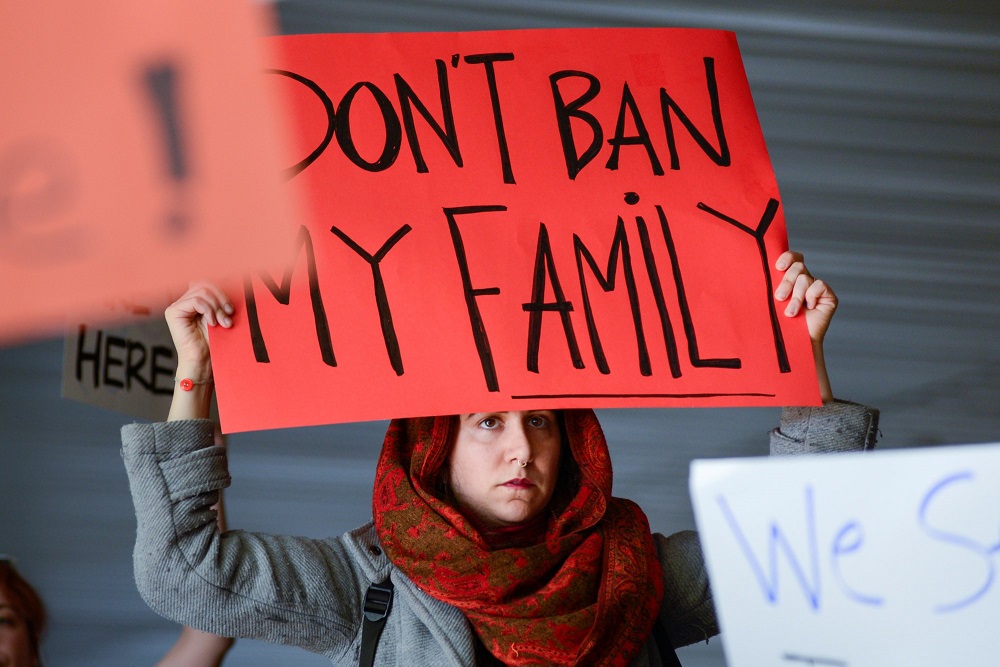The US Supreme Court agreed on Tuesday to an administration request on maintaining a strict policy on refugees.
The justices approved an administration request to block a lower court ruling that would have eased the refugee ban and allowed up to 24,000 refugees to enter the country before the end of October.
The Supreme Court ruling gives President Donald Trump a partial victory as the high court prepares for a key October hearing on the constitutionality of Trump’s controversial executive order, which banned travelers from six Muslim-majority countries and limited refugee admissions.
White House spokeswoman Sarah Huckabee Sanders said Tuesday night: “We are pleased that the Supreme Court has allowed key components of the order to remain in effect. We will continue to vigorously defend the order leading up to next month’s oral argument in the Supreme Court.”
The order was not the court’s last word on the travel policy that Trump first rolled out in January. The justices are scheduled to hear arguments on October 10 on the legality of the bans.
It’s unclear, though, what will be left for the court to decide. The 90-day travel ban lapses in late September and the 120-day refugee ban will expire a month later.
The administration has yet to say whether it will seek to renew the bans, make them permanent or expand the travel ban to other countries.
A March 6 order suspended travel for people from Iran, Libya, Somalia, Sudan, Syria and Yemen for 90 days and locked out most aspiring refugees for 120 days in a move the Republican president argued was needed to prevent terrorist attacks and allow the government to put in place more stringent vetting procedures.
The order took effect in late June, following a Supreme Court ruling that narrowed the scope of lower court rulings.
In a ruling last week, the 9th US Circuit Court of Appeals said grandparents, aunts, uncles and cousins of legal US residents would be exempt from the travel ban.
The Justice Department opted not to appeal that part of the 9th Circuit decision.
Lower courts have ruled that the bans violate the Constitution and federal immigration law. The high court has agreed to review those rulings. Its intervention so far has been to evaluate what parts of the policy can take effect in the meantime.
Naureen Shah, Amnesty International USA’s senior director of campaigns, said the refugee ban is inherently cruel.
“The Supreme Court today has dealt yet another devastating blow to vulnerable people who were on the cusp of obtaining safety for themselves and their families,” she said. “They continue to be subjected to unimaginable violence and fear while their lives are in limbo.”
Earlier on Tuesday the state of Hawaii, which challenged the policy, said in a court filing that the US government could still “bar tens of thousands of refugees from entering the country.” All the 9th Circuit ruling did is “protect vulnerable refugees and the American entities that have been eagerly preparing to welcome them to our shores,” Hawaii’s lawyers added.
Hawaii Attorney General Doug Chin said he respected the Supreme Court’s decision and is preparing for the hearing there on October 10.
